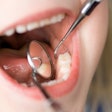
Canadian children who need dental treatment wait far too long to receive that care, according to the Wait Time Alliance's 2010 Report Card, released in June.
“We didn't really have an idea of the scope of the problem until now.”
— James Wright, M.D., University of
Toronto
From the beginning of 2009 to the end, 9,785 children underwent dental procedures at 15 pediatric academic hospitals participating in the wait-time checkup, according to the report. Most of the treatment was for early childhood caries (ECC). Another 4,608 (32% of total) were still on the wait list at the end of the year.
The report's authors gave pediatric dentistry a D grade for having the lowest percentage of cases completed within their specified target window in 2009 among 10 fields of surgery. The only other discipline that received a D was pediatric ophthalmology. This is because 25.4% of children slated to have ophthalmic surgery in 2009 were still waiting to have surgery as of December.
The authors noted that delayed surgery can have a lifelong impact on young people and their families, and called on the dental profession in particular to focus on reducing wait times.
This is the fifth annual report card from the Wait Times Alliance, which includes representatives from 14 Canadian medical organizations. This is the first time the alliance has examined wait times for pediatric surgery, including dental surgery.
"This has really highlighted a problem that the dentists probably already knew about and that those of us working in hospitals had a sense of, but we didn't really have an idea of the scope of the problem until now," said James G. Wright, M.D., M.P.H., a professor of surgery at the University of Toronto. He heads the Canadian Pediatric Surgical Wait Times Project, which supplied the pediatric surgery data for the 2010 report.
Lack of prevention
For Carlos Quiñonez, D.M.D., M.Sc., Ph.D., an assistant professor in the Faculty of Dentistry at the University of Toronto and director of the dental school's public health program, the data highlight the fact that far too many children in Canada are facing surgery for early childhood caries. He believes the root problem is a lack of prevention and education targeted to disadvantaged groups, and ultimately boils down to an issue of poverty.
"The U.S. spends more money on publicly financed dental care than we do, through programs such as Medicaid," he noted. "In Canada, we don't have a cohesive and comprehensive approach to the government funding of dental care, and because the healthcare system already faces many challenges, it prioritizes many things above dentistry. So a lot of things suffer -- including kids who can't get access to dental care either when their ECC is at the easily treatable stage or when it's deteriorated to the point of needing surgery."
In a study published last year, Dr. Quiñonez and his colleagues analyzed a large Canadian public health database and found 75,791 people made 79,133 day surgery visits for dental problems in Ontario between 2003 and 2006 (Community Dentistry and Oral Epidemiology, December 2009, Vol. 37:6, pp. 562-567).
Children younger than age 5 made 21% of the visits, and 87% of these surgeries were for ECC. Children ages 5 to 9 comprised 17% of the visits, and 15- to 19-year-olds comprised 12%. Sixty-nine percent of the visits by 5- to 14-year-olds were for ECC.
The literature points to the majority of these children being from low-income families and some being developmentally disabled, Dr. Quiñonez and his colleagues noted.
"It would thus seem reasonable that some attention be paid to the possibility of targeting prevention to children who receive dental surgery care -- e.g., with fluoride varnish and motivational interviewing" -- to reduce the future need for surgery, they wrote.
Access to care issue
The Canadian Dental Association (CDA) has also decried the fact that so many children have very long waits for dental surgery.
In a statement issued shortly after the Wait Time Alliance 2010 report was released, the CDA urged the Canadian government to treat pediatric surgery wait times as a serious access-to-oral-healthcare issue facing Canadian children.
And position papers on access to oral healthcare for Canadians issued by the CDA in May of this year acknowledge that children from low-income families are at high risk for ECC. The CDA is calling for measures such as the creation of new minimum mandatory standards for Canadian dental public health programs and the designation of resources to meet those standards.
"For true dental emergencies in this country, no one is sent away," said David Zaparinuk, D.D.S., who chaired the CDA Canadian Measures Survey Working Group, which wrote the position papers. "But for those individuals in the lower socioeconomic strata, there's more of an issue. We now have the Wait Time Alliance data to prove there's a problem, and this indicates the need for more study."
Copyright © 2010 DrBicuspid.com



















